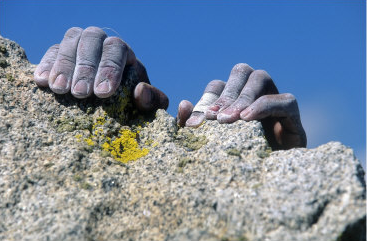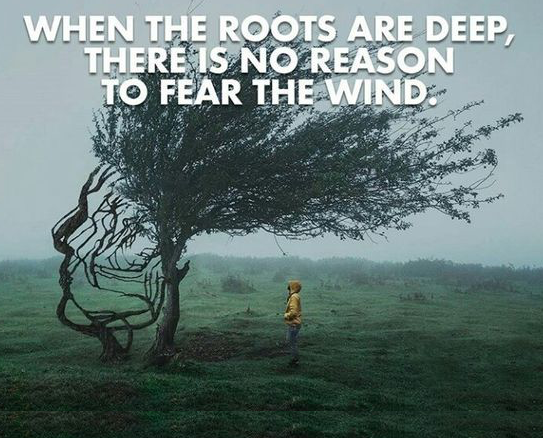 When I see people around me struggling – friends, family, colleagues, clients and indeed myself – I wonder how we keep going. A client asked me yesterday “how do I keep going with the daily grind when all this is blowing up around me?” I know this from my personal experience: how do I get up and continue my life, go to work, or engage in community when my internal world feels so chaotic or empty? How do we get the children to school, turn up and do a days work, keep the household in order when life is unstable, when our inner world is on the verge of exploding outward? Freud wrote about the need for work and love, vital components that bring a thread of consistency, stability. Ground to hold on to when everything feels groundless. I’ve been considering this a lot recently: seeing friends go through relationship break ups, illness diagnosis, job loss threat – how do we carry on when often the mundane feels so unimportant compared to our inner woes.
When I see people around me struggling – friends, family, colleagues, clients and indeed myself – I wonder how we keep going. A client asked me yesterday “how do I keep going with the daily grind when all this is blowing up around me?” I know this from my personal experience: how do I get up and continue my life, go to work, or engage in community when my internal world feels so chaotic or empty? How do we get the children to school, turn up and do a days work, keep the household in order when life is unstable, when our inner world is on the verge of exploding outward? Freud wrote about the need for work and love, vital components that bring a thread of consistency, stability. Ground to hold on to when everything feels groundless. I’ve been considering this a lot recently: seeing friends go through relationship break ups, illness diagnosis, job loss threat – how do we carry on when often the mundane feels so unimportant compared to our inner woes.
My personal commitment to unfold and become have led to a lot of once hidden aspects of my ‘self’ rushing up in to awareness: recounting dreams, recognising bodily feelings, realisations in relationship are all feeding in to a rapidly changing inner landscape and a need to re-write the ideas I had about myself. This can be deeply disconcerting, yet at the same time I hold it as a precious gift. However, its timing can be less than convenient! Having a commitment to give my bodily wisdom the space does not take in to account I have marking deadlines for example, or that I need to cook dinner for friends, or that I need to go and do the weekly shop. How do we hold what is unfolding, needs to unfold but take a hold, feel our feet and stay steady?
I often share with my clients the Buddhist teaching of the Eight Worldly winds. A central tenant of Buddhism is how the struggles of life are associated with constant change: we suffer because things change and we resist that change. The Buddha named eight “winds” that threaten to blow us off course: praise and blame, gain and loss, success and failure, joy and sorrow. If we can learn to “go with” rather than resist these winds of change our suffering will reduce. “Going with” carries a quality of equanimity. Watch trees in the wind: their branches and trunk don’t break because they have deep roots and they learn to go with. Don’t believe the praise or the blame, don’t strive to make gain or fear loss, don’t use success or failure to guide how you feel about yourself, and don’t hunt down joy and avoid sorrow. Instead, we learn to ride these waves and not make any of them the truth. One of my clients commented “ah yes, like in yoga when we stand on one leg – my teacher encourages me to take my awareness down my leg, deep in to the ground”. To feel our connection to earth, to find ground helps us stay upright.

I was meditating this morning and as I ‘plugged down’ in to my cushion, I had a sense of gravity pulling me down. And from that contact with thecushion I felt my spine push up: sitting with strength as I trusted the earth to hold me. I’ve noticed the more I can give over to that process, the safer it feels for my experience to percolate, for my emotional world unfold. I won’t say its pleasant, but I know what is emerging for me right now is important process. Things that I never knew about myself are coming up in this mid-life transition; things that needed to come up and find air if I am to grow, self-actualise or ‘wake up’ (depending on your given spiritual frame).
Meditation master Chogyam Trungpa once said the part of us that knows we are confused is not confused. If we aware of being angry, being anxious, or being sad that part of us cannot be IN that emotion, it stands back if you like. In other words, we might fear being drowned my our emotion but that cannot happen if we keep shining the light of awareness on to our experience. In psychotherapeutic language, we could say that as our inner Child or Id is experiencing distress, or as our inner Parent or Super-Ego is raging at us there is a capacity for our Adult, or healthy ego to hold us (just like we might hold a real child). The knowing adult can provide the roots while the internal storm blows. This helps me. As a 45 year old, I can trust my basic okayness – I am an adult, I have the resources, I have the know-how to hold steady; and I have awareness that my inner parts, my psyche is playing out an echo that is very old – I just need to ride those waves.
Therapy then becomes an act of helping clients recognise their basic okayness, their resourcefulness, their resilience. Very often my clients don’t trust their own ground so I offer them mine while they find their feet and find their roots. Many of the people I work with haven’t had a good enough modelling of being okay, or haven’t experienced the holding needed to know they can ride any storm.
Therapy develops ego-strength* – that ability to hold one’s experience without caving in to it. Meditation can help us gain confidence and trust that this is possible.
————–
*This is one thing that confuses people about Buddhism – isn’t the task to remove the ego? No, egolessness is NOT sacrificing or transcending ego, but rather to realise that ego has a function. It creates a reality in order for us to navigate our world. It is when we mistake this functionality for truth that things get a bit messy. It is like mistaking the movie projector and film for real life.

